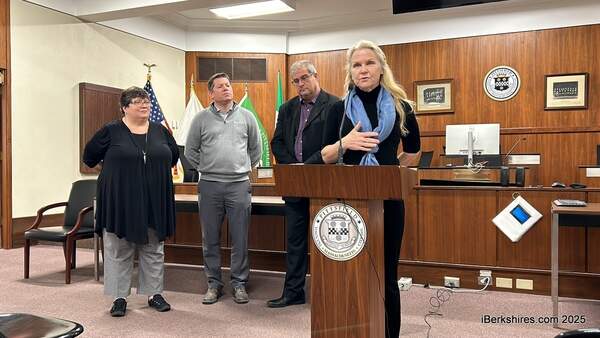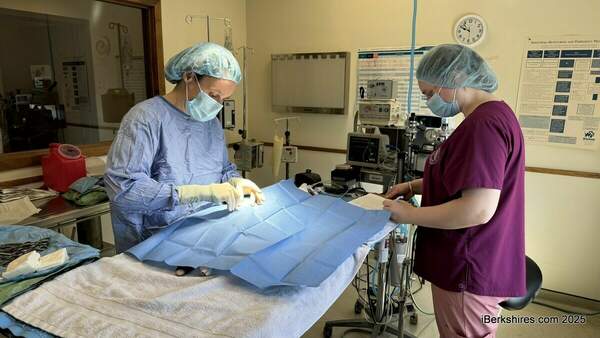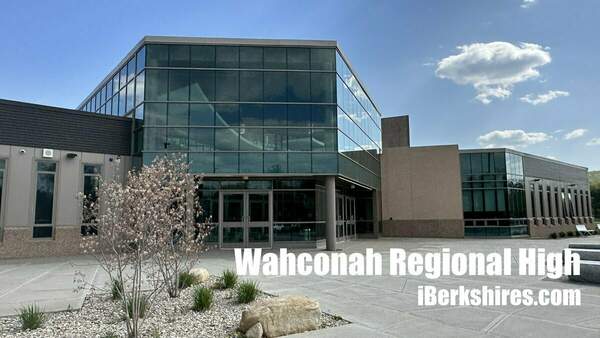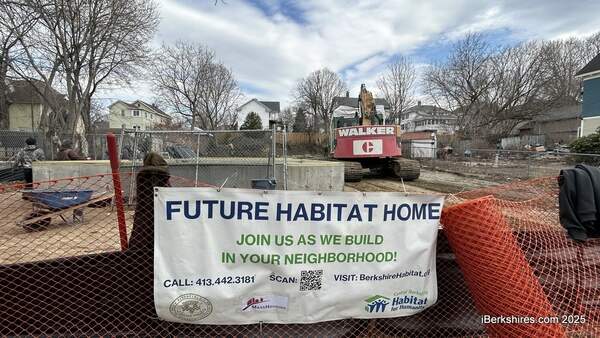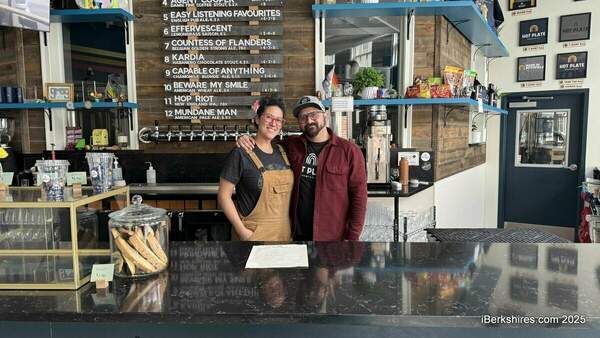BRTA Celebrates 50 Years, Electric Buses
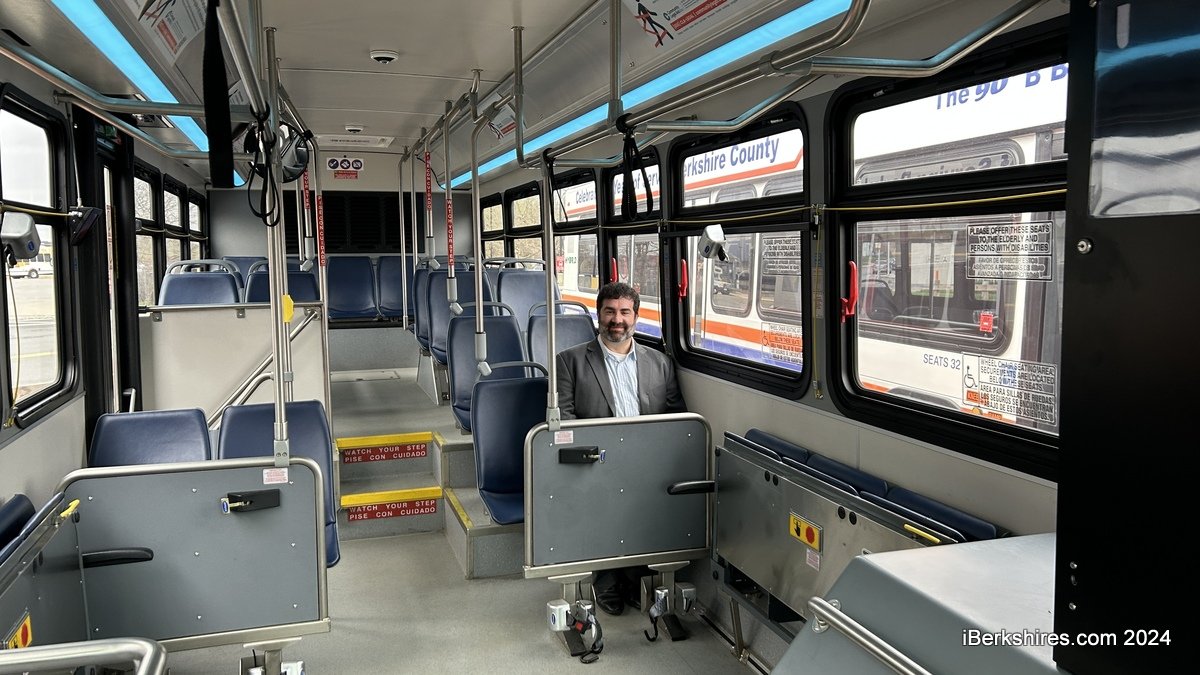
PITTSFIELD, Mass. — The Berkshire Regional Transit Authority is celebrating its 50th anniversary with new hybrid buses that tell a story about its history.
The BRTA was awarded five eco-friendly buses in the past two years as part of President Joe Biden's Bipartisan Infrastructure Law under the Federal Transit Administration's Low or No Grant Program. Each is valued at about $800,000 and is decorated to represent different BRTA eras.
"It's not for us, it's for our customers," Administrator Robert Malnati said. "It's the reason we're here. We're here to make sure that our customers can go where they need to go when they need to get there in a safe and efficient manner."
Three of the buses have been on the road for about a month and the rest are expected this year. Paying homage to the BRTA's decades of service to the county, they are wrapped in retro graphic designs that call back to its buses in the 1970s, 1980s and 1990s.
Local and state officials marked the occasion with a ribbon cutting on Monday, highlighting the importance of public transportation and embracing greener technologies to move people around.
The BRTA is looking at hydrogen fuel cell vehicles for the future, which are powered by pure hydrogen gas and emit water vapor.
"As you move forward in upgrading your bus fleet, you are truly transforming our transformation system while protecting our air, our water, and our shared future," Federal Transit Administration Region 1 Administrator Peter Butler said, explaining that it is the FTA's job to support that innovation.
State Rep. Tricia Farley-Bouvier said Berkshire County is no different than the rest of state RTAs when it comes to the challenge of securing funding but it does have greater geographical challenges.
"I'm not pretty interested in solving the problems of the buses. I'm interested in solving the problems of people who are trying to be more responsible in their transportation," she said.
The vehicles are 35-foot heavy-duty Gillig Diesel-Electric Hybrids with BAE Series-ER propulsion systems and include features to improve rider and operator experience.
"There is a monitor with a 3D camera that continually scans through the bus that we can use with technology for some of our federal reporting once that system is perfected," Malnati explained.
"We've done some different seating arrangements. We've done different wheelchair securement systems to make it easier for the operator and easier for the customer so we've tried to find out which would help make it easier for everyone."
He thanked the FDA "because without their assistance we wouldn't be standing here today" and the Massachusetts Department of Transportation for providing 20 percent matching funds when BRTA was awarded more than $2.2 million for the project.
"These vehicles, each one was a little north of $800,000 so a far cry from what a normal transit vehicle would be, which is only maybe $600,000, so you do pay for the hybrid part of it," he said.
"It's well worth it for us to be able to transition into less greenhouse gas emissions and help with the environment here."
MassDOT Deputy Transit Administrator Thomas Schiavone pointed out that all 15 of the RTAs are celebrating their 50th anniversaries and showing off some new equipment is a great way to do that.
"What a wonderful partnership the commonwealth has with FTA Region One. We're able to pull together some resources for all the transit authorities and today we have celebrated what those resources have accomplished," he said.
While the customer experience is critically important, bus operators' experience is also paramount.
"It's a difficult time in transit with frontline workers. They've experienced a lot since the pandemic and anything that the administrators can do to make the lives easier of the folks that operate these vehicles, they're doing that," Schiavone said.
"And this is a testament tool right here providing these state-of-the-art vehicles for not only their operators but their customers whose experience is critical."
State Rep. John Barrett III said he is "so impressed" with what he has seen over the last seven years relating to RTAs — especially in Berkshire County.
"The Legislature has increased its funding. I think it's going up $10 [million] or $12 million each year which isn't enough in the state budget to fund regional transit authorities throughout the state," he said.
"This is another example of the changes that are coming especially in rural areas here out in Berkshire County that need this transit. It's so important."
Barrett added that the BRTA has responded to the challenges that are faced in the region.
"This is a great day modernizing the fleet and the wave of the future, as it says, it's not cheap. It's going to be difficult but at least we're getting to that point in time where we're going to see significant changes and we care about our environment out here so this is a good day for the BRTA," he said.
"It may not be the sexiest thing around for a lot of people but to those of us who are in the business, it's very important, and congratulations on getting it done."
Tags: BRTA, buses, greenhouse gases, hybrid cars,





